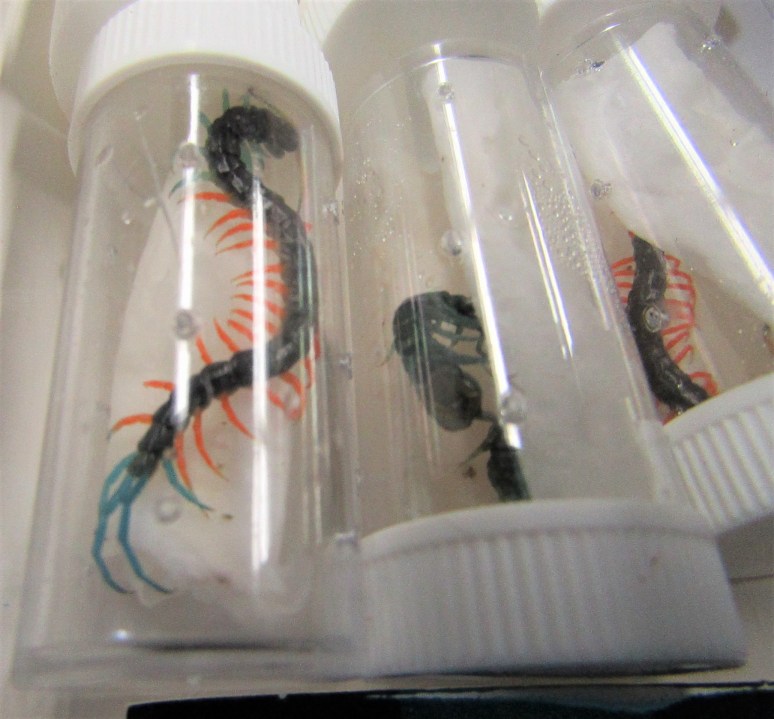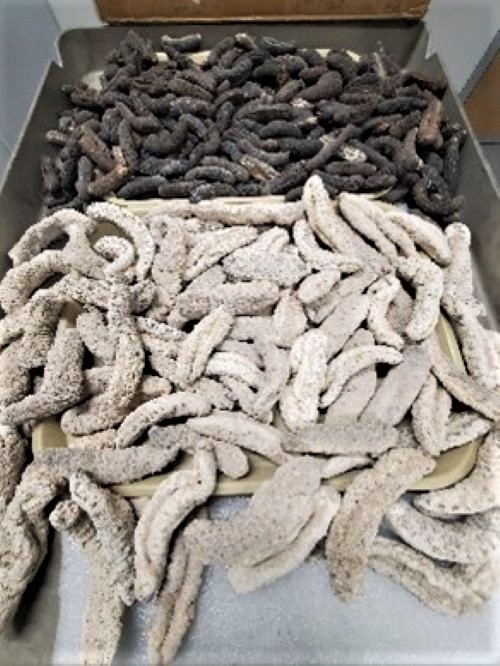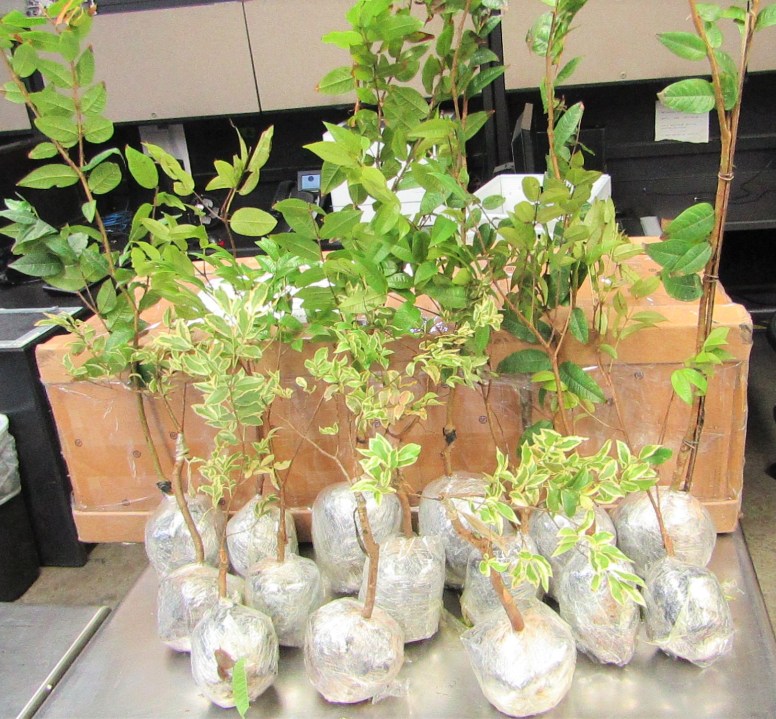Foreign live centipedes, dried sea cucumbers, plants and swine sausages: What do these four have in common? U.S. Customs and Border Protection seized these unusual items in recent shipments to local ports of entry in the Greater Los Angeles area.
On May 5, CBP discovered over 55 pounds of noodles with ruminant ingredient and swine sausage products manifested as “packaging box,” CBP said in a news release.
On May 4, the agency’s agriculture specialists found something they considered odd while examining an air mail shipment declared as “earphones” arriving from Malaysia. They opened the box and discovered 26 vials containing live centipedes concealed in earphone cases.
On May 3, the agriculture specialists stopped 15 unknown live propagative plants with soil, declared as “plastic flowers” arriving from China.
A week earlier, on April 27, CBP intercepted a shipment arriving from Hong Kong with 28.6 pounds of dried sea cucumbers declared as “dried food”.
These four shipments lacked the required official permits or certificates, CBP said. Such violations are a lesser-known form of contraband arriving every day from overseas in ocean containers and postal and express air mail to destinations all over the United States, the agency added.

Swine sausages were seized by the U.S. Customs and Border Protection at L.A.-area ports of entry in May 2022. (CBP) 
Foreign live centipedes were seized by the U.S. Customs and Border Protection at L.A.-area ports of entry in May 2022. (CBP) 
Dried sea cucumbers, plants were seized by the U.S. Customs and Border Protection at L.A.-area ports of entry in April 2022. (CBP) 
Plants were seized by the U.S. Customs and Border Protection at L.A.-area ports of entry in May 2022. (CBP)
When prohibited animal products are intercepted, CBP issues “Emergency Action Notifications” to initiate the destruction or re-exportation of the contraband items. In fiscal year 2020, the L.A. field office issued 2,695 such notifications, and in 2021, they issued 4,665 — that’s a 73% increase over the previous year.
“The illegal importation of plants and animal products could introduce foreign pests and diseases threatening the United States vital agriculture industry,” said Carlos C. Martel, director of field operations the CBP office in L.A. “These unprecedented numbers reflect the critical role of CBP’s agriculture specialists in identifying and intercepting these shipments.”
The live centipedes and the dried sea cucumbers shipments were referred to U.S. Fish and Wildlife Service for investigation and final determination. The federal agency requires a license to trade in wildlife and possibly additional permits if the species is protected.
The propagative plants, the ruminant noodles and swine sausages were destroyed under USDA and CBP supervision using steam sterilization, according to the news release.
“Unregulated animal products from overseas are in high demand and smugglers attempt to smuggle those products into the United States for profit without regard to consumer safety or potential damage to the agriculture industry,” Martel said.
Many consumers are not aware of the importation restrictions, according to CBP.
“Pork products from African Swine Fever (ASF) affected countries may introduce the virus to the United States, crippling the domestic pork industry and U.S. pork exports valued at $6.5 billion annually,” the news release states.
African Swine Fever is spread by contact with an infected animal’s body fluids. It can also be spread by ticks that feed on infected animals.





















